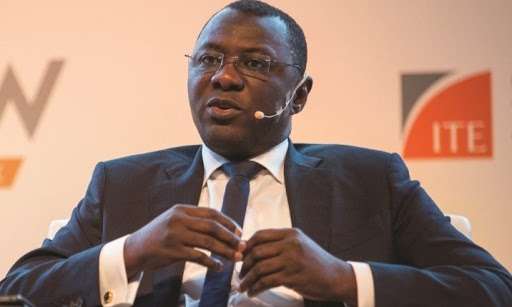As Ghana draws closer to another pivotal general election, financial analysts and good governance advocates are raising alarms about the perennial issue of reckless government expenditure.
Historically, election years under Ghana’s Fourth Republic have seen a surge in government spending, primarily driven by the incumbent’s desire to undertake development projects that could sway votes in their favour.
This pattern of fiscal imprudence has repeatedly left the economy in dire straits, saddling it with debt and fiscal imbalances that hamper long-term growth and stability.
The International Monetary Fund (IMF), in an earlier caution, feared that budget deficits would deviate from the target at a time when public finances are not yet healthy, and urged government for fiscal moderation.
The Founding President of IMANI Centre for Policy and Education, Franklin Cudjoe, wading into the conversation urged the Finance Minister, Dr Mohammed Amin Adam to ensure that government spending remains prudent during this election year.
Mr Cudjoe’s call is particularly significant given what he termed as the impressive track record of Dr. Amin Adam, whom he lauded for his adept handling of the debt restructuring process, resulting in notable savings in both principal and interest.
However, Mr Cudjoe pointed out that Dr Amin Adam’s real test begins now, underscoring how it is important for the Finance Minister to guard against needless and reckless government expenditures fueled by political expediency.
“Why was Mohammed Amin Adam not made a minister of finance much earlier? He’s been impressive so far with the conclusion of the debt restructuring with some good savings in principal and interest. His real test begins with how he can ward off the vampires at the centre from sucking the soul out of nearly $500m (IMF+WB) money for infrastructure in this election year”.
Franklin Cudjoe, Founding President of IMANI Centre for Policy and Education
The Need for Fiscal Discipline
Furthermore, Mr Cudjoe emphasized that Dr Amin Adam’s challenge lies in his ability to balance the inevitable political pressures with the need for fiscal discipline, ensuring that these funds are not squandered through poor procurement processes or mismanagement.

He underscored the importance for the Finance Minister, Dr Mohammed Amin Adam to exhibit leadership in his current role, cautioning him not to earn the reputation of a fiscally reckless finance minister under the New Patriotic Party administration.
“He must be realpolitik as some excess behaviour does occur in elections, but he should watch the economic bandits very well, lest he is remembered only for clearing the mess created by them only for their habitual spendthrift cousins steeped in election racketeering to take over. Any attempt to yield to that highway ‘gbaga midus’ will mean avoidable costs in poor procurement processes and eventually poor delivery of services, roads especially”.
Franklin Cudjoe, Founding President of IMANI Centre for Policy and Education
He expressed confidence in Dr Mohammed Amin Adam’s ability to champion this cause, highlighting the dangers of election-year over-expenditures by successive governments.
As earlier indicated, Ghana’s governments have often succumbed to the temptation of overspending, leading to a cyclical pattern of post-election fiscal consolidation that undermines economic progress.
This reckless expenditure is frequently driven by the desire to win votes, resulting in projects that are hastily implemented and poorly executed.
The consequence is not only a strain on the national budget but also a legacy of substandard infrastructure and unmet development goals.
The IMANI Centre for Policy and Education Founding President, Franklin Cudjoe’s call for prudent election-year expenditure is therefore not just a plea for fiscal responsibility but a crucial reminder of the long-term repercussions of financial mismanagement.
As the country gears up to the December 7 polls, it is imperative that the government, and particularly the Finance Minister, prioritize the country’s economic health over short-term political gains.
The Finance Minister must be vigilant against those who might push for imprudent spending that serves immediate political gains at the expense of long-term economic health.
As Mr Cudjoe aptly put it, any lapse into “fiscally reckless” behaviour could lead to avoidable costs, inefficient procurement processes, and ultimately, poor delivery of services.
READ ALSO: July Starts in a Dead Heat for GSE



















